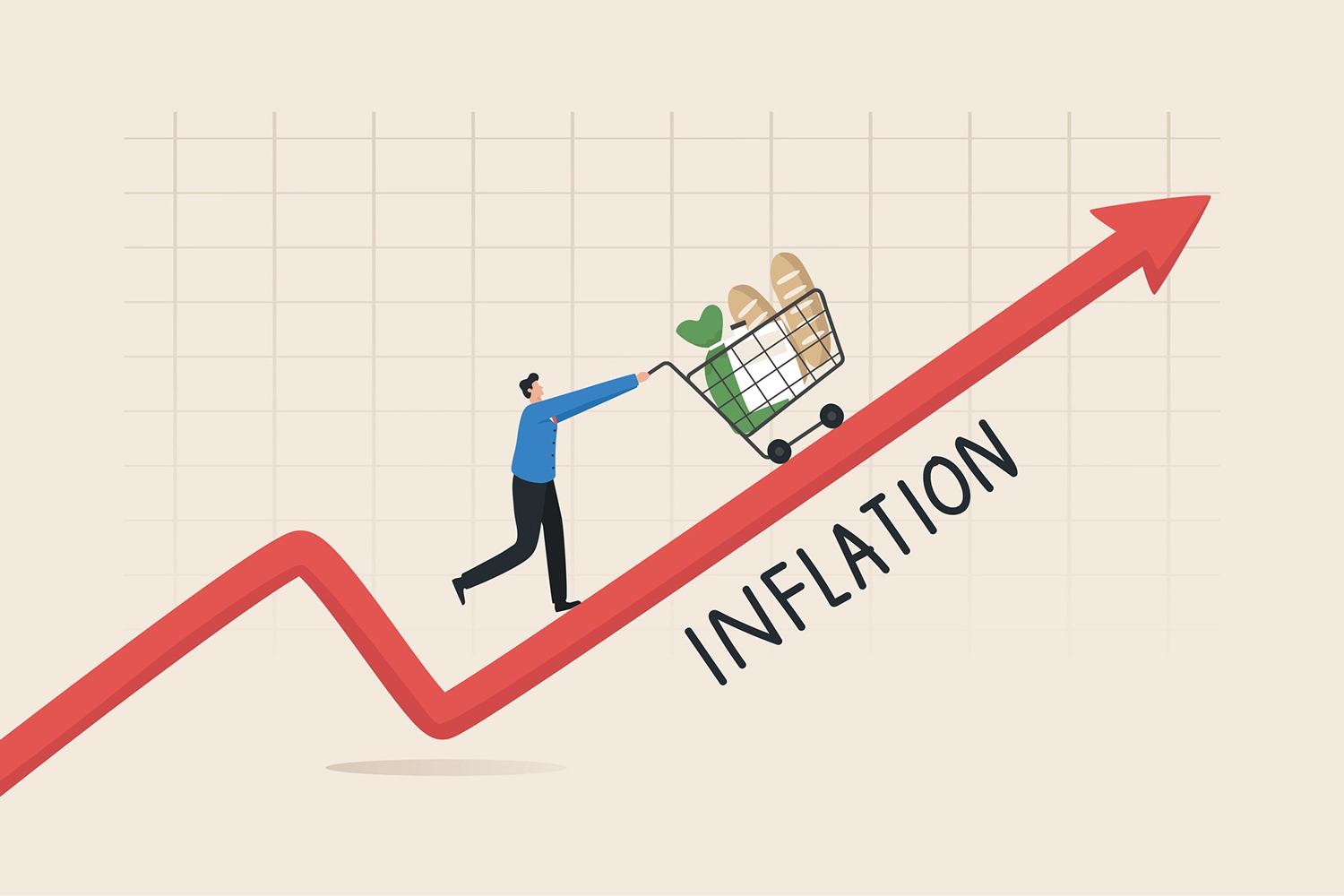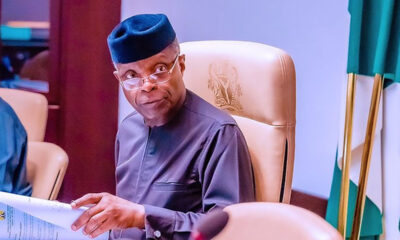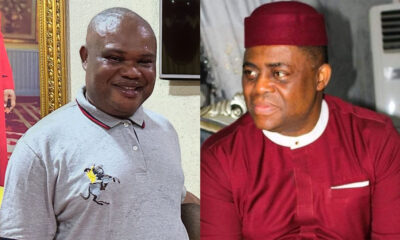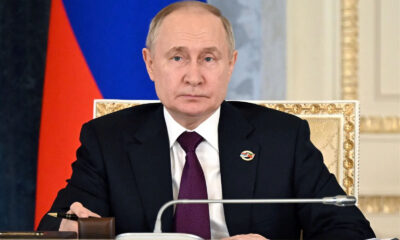Uncategorized
Will Trump’s obstinacy weaken US democracy?

- Pompeo: There’ll be smooth transition to second Trump administration
- Trump refusal to concede embarrassing – Biden
- Experts predict what will happen
Rasheed Bisiriyu
The world is watching the drama playing out in the United States after the presidential election last week with keen interest.
In the tensely contested poll between the incumbent, Donald Trump of the Republican Party and his challenger, Joe Biden of the Democratic Party, the later won the race with 77,170,769 popular votes (50.8%) and 290 Electoral College votes against Trump’s 72,057,511 votes (47.5%) and 214 electoral votes.
Trump has accused the Democrats of electoral fraud and headed to court to challenge the outcome of the election, insisting that he was victorious at the poll.
But the president-elect, Biden, called Trump’s actions since the election day “an embarrassment.”
Election officials across the country said there was no evidence that fraud or any other irregularity played a role in the outcome of the presidential race.
There appears no sign that Trump is ever going to accept the results of the poll even if he loses at the court.
Secretary of State Mike Pompeo said on Tuesday with a grin that there would be a “smooth transition to a second Trump administration,” echoing President Trump’s demands for a delay until “every legal vote” is counted.
President Trump, facing the prospect of leaving the White House in defeat in January, is using power of the federal government to resist the results of an election that he lost, something that no sitting president has done in American history.
In the latest sign of defiance on Tuesday, Secretary of State Mike Pompeo predicted “a smooth transition to a second Trump administration,” defending the president’s refusal to concede even as President-elect Joseph R. Biden Jr. called Mr. Trump’s actions since Election Day “an embarrassment.”
Secretary of State Mike Pompeo said on Tuesday with a grin that there would be a “smooth transition to a second Trump administration,” echoing President Trump’s demands for a delay until “every legal vote” is counted.
His words: “There will be a smooth transition to a second Trump administration. All right, we’re ready. The world is watching what’s taking place. We’re going to count all the votes. When the process is complete, they’ll be electors selected. There’s a process — the Constitution lays it out pretty clearly. The world should have every confidence that the transition necessary to make sure that the State Department is functional today, successful today and successful with the president who’s in office on Jan. 20, a minute after noon, will also be successful. I went through a transition on the front, and I’ve been on the other side of this. I’m very confident that we will do all the things that are necessary to make sure that the government, the United States government, will continue to perform its national security function as we go forward.”
Speaking to reporters in Delaware, Biden shrugged off Pompeo’s comments, saying that his transition was moving along well and that he was confident that Republicans would eventually accept his victory.
“They will; they will,” he said.
The president’s attorney general, William P. Barr, has also authorized investigations into supposed voter fraud, his general services administrator has refused to give Biden’s team access to transition offices and resources guaranteed under law, and the White House is preparing a budget for next year as if Trump will be there to present it.
Trump started the week by firing Defense Secretary Mark T. Esper and the heads of three other agencies while installing loyalists in key positions.
Allies expect more to come, including the possible dismissal of the directors of the FBI and the CIA.
The moves have left the United States in the position of the kind of country whose weak democratic processes the US often criticises.
Rather than congratulating Biden and inviting him to the White House, as his predecessors traditionally have done after an election changed party control, Trump has been marshaling his administration and pressuring his allies into acting as if the outcome were still uncertain.
The president’s efforts to discredit with false claims both the election results and the incoming Biden administration is in many ways the culmination of four years of stocking the government with pliant appointees while undermining the credibility of other institutions in American life, including intelligence agencies, law enforcement authorities, the news media, technology companies, the federal government more broadly and now election officials in states across multiple time zones.
The president is employing the powers of the government to resist election results.
Officials across the U.S. say they found no evidence that voter fraud played a role in the election results.
Secretary of State Frank LaRose of Ohio, standing, with his team in Columbus on election night. “There’s a great human capacity for inventing things that aren’t true about elections,” he said.
Election officials in dozens of states representing both political parties said that there was no evidence that fraud or other irregularities played a role in the outcome of the presidential race, amounting to a forceful rebuke of President Trump’s claims of a fraudulent election.
Steve Simon, a Democrat who is Minnesota’s secretary of state, said, “I don’t know of a single case where someone argued that a vote counted when it shouldn’t have or didn’t count when it should. There was no fraud.”
A spokeswoman for Scott Schwab, the Republican secretary of state in Kansas, said in an email on Tuesday. “We are very pleased with how the election has gone up to this point.”
But over the past several days, Trump, members of his administration, congressional Republicans and right-wing allies have falsely claimed that the election was stolen from Trump and refused to accept results that showed Biden as the winner.
According to a report by Joe Middleton in The Independent newspaper of the UK, peaceful transition of power is the bedrock of American society, and notes that even in past contentious elections, resolutions had been made long before any refusal to concede.
It recalled that Richard Nixon conceded to John F Kennedy in 1960 amid several accusations of vote rigging for the Democrat, for instance. Vice president Al Gore accepted the Supreme Court’s ruling that George Bush had won the 2000 presidential election even though there were significant questions about the integrity of the results in Florida.
This view is shared by a writer and editor Amy Mckeever in a national geographical.com report saying no modern presidential candidate has refused to concede.
“The formal concession speech has played a vital role in even the most divisive U.S. elections, from the Civil War to Bush v. Gore,” she states.
Middleton quotes a professor of political science at the University of British Columbia, Paul Quirk, as saying Trump refusing to concede could put law enforcement in an awkward position.
Quirk says, “At some point, the question would become: whose orders do law enforcement (agents) obey? Because it would ultimately become a matter of the use of force in one direction or another.”
The US constitution is said to have made no mention of how a president should be removed if they lose an election and refuse to hand over power to their opponent. So, it is hard to say if anyone would have the appetite to send the FBI, or navy seals, or whatever law enforcement agency, storming into the West Wing to arrest recently defeated Donald Trump.
Another professor of political science at the University of New Haven, Joshua Sandman, said he did not think Trump would ever refuse to leave office after an election because it would destroy the president’s legacy.
He insisted intense congressional and political pressure would force Trump out of office quickly.
“The first line of defence would be the congress, and his party pressuring him out, telling him he must resign or leave,” Sandman says, adding, “If he wants to stay in the White House, he would stay in the White House. But, again, hypothetically you don’t need that. The White House is symbolic. It’s not a seat of power, necessarily.”
In an interview with The Independent in 2019, Ross Baker, an American political expert at Rutgers University in New Jersey, made a prediction of what would happen if Trump lost re-election by a very narrow margin.
He imagined a scenario where the popular vote was won by less than one per cent nationwide, and where there was a near tie in the electoral college. On 4 November 2020, America could wake up to tweets from the president calling the previous day’s results a fraud, and saying there is no way he did not win by huge margins.
Should that happen, Baker said he imagined a scenario in which the House of Representatives got to decide the electoral college based upon each state’s delegation
“It would certainly be a constitutional crisis to the first magnitude,” Baker he said.
Mckeever, recalling how concessions became an election tradition, reports that peaceful transfer of power has been a norm since 1800, when the country’s second president John Adams became the first to lose his reelection bid and quietly left Washington, D.C., on an early morning stagecoach to avoid attending his successor Thomas Jefferson’s inauguration.
According to the report, some early presidential candidates did send congratulatory letters to their opponents, says John R. Vile, dean of political science at Middle Tennessee State University in Murfreesboro, who has written about the history of concession speeches. But formal concessions didn’t become an election custom until 1896, when Republican William McKinley defeated Democrat William Jennings Bryan.
In his account of the campaign in a later memoir, Bryan wrote that he began to resign himself to the loss by 11 p.m. on election night—a resignation that grew in the subsequent days as states completed counting ballots. On Thursday evening, Bryan learned that his loss was certain and immediately sent a telegram to McKinley, offering his congratulations and stating: “We have submitted the issue to the American people and their will is law.”
With that, a custom was born—much to Bryan’s own bewilderment as he considered it to be simply the courteous thing to do. “This exchange of messages was much commented upon at the time, though why it should be considered extraordinary I do not know,” Bryan wrote. “We were not fighting each other, but stood as the representatives of different political ideas, between which the people were to choose.”
Ever since, losing candidates have conceded to their opponents—even sitting presidents. In 1912, for example, Republican President William Howard Taft conceded to Democrat Woodrow Wilson at 11 p.m. on election night, while in 1932 Republican incumbent Herbert Hoover telegraphed his congratulations to Democrat Franklin Delano Roosevelt the day after the New York governor unseated him, and Hoover promised to dedicate himself “to every possible helpful effort.” (In the wake of the election, however, Hoover became a vocal critic of FDR’s policies.)
In 1960, Republican Vice President Nixon sealed his own loss to Democrat John F. Kennedy when, in his role as president of the Senate, he counted and confirmed the electoral votes. Even though Hawaii had sent two sets of votes after its results had been briefly contested, Nixon asked for, and received, unanimous consent to count the state for his opponent since they would not have changed the results of the election. “I don’t think we could have a more eloquent example of the stability of our constitutional system and the proud tradition of the American people of developing, respecting, and honoring institutions,” even when one loses, Vile says.
He also recalls some sore losers. For instance, in 1916, it took Republican Charles Evans Hughes two weeks to congratulate incumbent Democratic president Woodrow Wilson after a race so close it had taken two days to count the votes—which had initially been erroneously called in Hughes’ favour.
Business
Just in: Fuel, food prices push up inflation to 32.70%

Just in: Fuel, food prices push up inflation to 32.70%
Nigeria’s headline inflation rate has risen to 32.70%, propelled by increases in transportation cost and food prices.
The National Bureau of Statistics (NBS) disclosed this on Tuesday in its latest Consumer Price Index (CPI) report which reflected the inflation in September 2024.
This shows a 0.55% increase over 32.15% recorded in August 2024.
This is coming on the heels of increases in petrol prices by the Nigerian National Petroleum Company Limited in early September.
The latest rate is 5.98 percentage points higher than the 26.72% recorded in September 2023, indicating a significant increase in inflation over the past year.
The headline inflation rate in September 2024 was 2.52%, 0.30% higher than the 2.22% recorded in August 2024.

Uncategorized
Libya frustrated us, one-goal victory a relief – S’Eagles Coach Eguavoen

Libya frustrated us, one-goal victory a relief – S’Eagles Coach Eguavoen
The Super Eagles head coach Augustine Eguavoen had reacted to the one-goal win the Nigerian team recorded against the Mediterranean Knights of Libya in the 2025 AFCON qualifiers Friday evening in Uyo.
He described it as a huge relief.
Eguavoen, in a post-match briefing at the Godswill Akpabio International Stadium in Uyo, said he expected his players to have scored more goals.
The Super Eagles played a goalless draw with the Libyan side in the first 45 minutes and until Dele Bashiru came to their rescue in the 87 minutes in the second half.
The Super Eagles coach said the Libyan tactics robbed his team of many goals, as they played defensive throughout the first half of the match.
He said, “Emotions were high, and when the goal came, it was a huge relief. Actually, we should have scored more goals but the tactics that they deployed was compact as they defended in numbers when the ball was in their area.
“We were a bit slow in the first-half, but the boys picked up in the second half and ball circulation became faster as instructed. The last 25 minutes was better.”
News
Human rights writers back Rivers gov on judicial inquiry against ‘political terrorists’

Human rights writers back Rivers gov on judicial inquiry against ‘political terrorists’
Civil rights advocacy group, Human Rights Writers Association of Nigeria (HURIWA), has praised Rivers State Governor, Sir Siminalayi Fubara, for his decisive move in establishing a Judicial Commission of Inquiry to investigate the violence, arson, and destruction of public property that followed the local government elections in the state.
HURIWA described inquiry as one of the Governor’s most commendable actions, given the need for justice and accountability in the face of such serious unrest.
In a media statement, by its national coordinator, Emmanuel Onwubiko, HURIWA lauded the commission as a crucial step toward identifying and prosecuting the perpetrators, whom it referred to as “political terrorists.”
The Governor had inaugurated a seven-member Judicial Commission of Inquiry to probe the violence that led to the burning of several local government council headquarters in Rivers State.
“This is a well-timed intervention aimed at uncovering the root causes of the unrest and ensuring those responsible are held accountable,” the statement read.
HURIWA stressed that the individuals behind the violence are not mere vandals but political terrorists determined to destabilize the state’s democratic institutions.
“Those who burned local government secretariats to disrupt the election process and undermine democracy are political terrorists by definition,” the group asserted.
While commending that the Commission of Inquiry, which Justice Ibiwengi Roseline Minakiri chairs, includes prominent individuals like Mrs. Inyingi Brown, who serves as the secretary, and Uzor Ikenga, acting as counsel, HURIWA stressed the importance of this commission in delivering justice.
The human rights group called on security forces to ensure that any individual, regardless of political stature, is made to appear before the commission if summoned. “If any person, no matter how powerful or influential, is implicated in this plot to destabilize Rivers State, the security agencies must act swiftly to arrest and present them before the commission. If found guilty after lawful proceedings, they should be prosecuted,” HURIWA stated.
READ ALSO:
- Three sentenced to death by hanging in Ekiti for armed robbery
- Nigerian Air Force opens recruitment for direct short service(see how to apply
- NLC to FG: Previous hikes got people poorer, reverse new fuel price increase
HURIWA also expressed dissatisfaction with President Bola Tinubu’s response to the situation, describing his remarks as lacking statesmanship.
In a statement issued by the President’s Special Adviser on Information and Strategy, Bayo Onanuga, the President had urged political leaders in Rivers State to settle their disputes in court while also directing the police to ensure the protection of public facilities. However, HURIWA criticized the President for failing to identify those responsible for the violence explicitly and instead attempting to shift the narrative onto Governor Fubara.
The human rights group pointed out that it is not within the President’s purview to direct the Inspector General of Police (IGP) to carry out his constitutional duties, especially after a failure of security management has already occurred.
“It is not the President’s job to tell the IGP to ensure peace and order at the local government offices. That is the constitutional responsibility of the police, and the IGP should not need a reminder to fulfill that role,” HURIWA stated.
Furthermore, HURIWA criticized IGP Kayode Egbetokun for previously refusing to provide security during the Rivers local government elections, thus making him a partisan player in the crisis.
The group argued that the IGP’s refusal to maintain neutrality compromised his role as the nation’s top police officer, and as such, President Tinubu should have dismissed him. “By allowing IGP Egbetokun to remain in office after he failed to secure the elections and by condoning his partiality in this crisis, the President is effectively endorsing impunity and lawlessness,” HURIWA remarked.
In light of the IGP’s actions, HURIWA issued a seven-working-day ultimatum to arrest and prosecute the individuals responsible for the violence and arson in Rivers State.
The group emphasized that these individuals, many of whom were captured on video, must be apprehended and held accountable. “The terrorists who set local councils on fire are identified on video. If the IGP fails to arrest them within seven working days, HURIWA will initiate an international campaign urging European countries and the United States to impose visa bans on him. We will work to ensure that any visas he holds are revoked,” HURIWA warned.
The group stressed that while it is committed to achieving justice within Nigeria, it will not hesitate to seek international redress if the situation is not addressed swiftly. “We are prepared to launch a global advocacy campaign against IGP Egbetokun unless he fulfills his constitutional duty and arrests these criminals,” HURIWA concluded.
In closing, HURIWA reaffirmed its support for Governor Fubara’s actions, stating that the judicial commission of inquiry is an essential step toward restoring peace and preventing Rivers State from becoming a theater of lawlessness. The group called on all stakeholders, including security forces, political leaders, and the judiciary, to act responsibly in addressing the issue. “This is a defining moment for the rule of law in Rivers State. Those responsible for this chaos must face justice, and we commend the Governor for his bold and timely action in establishing this inquiry,” HURIWA said.
The group also reiterated its readiness to hold the IGP and other law enforcement agencies accountable, insisting that no one is above the law, and urged Nigerians to remain vigilant in safeguarding democracy in Rivers State.
Human rights writers back Rivers gov on judicial inquiry against ‘political terrorists’
-

 News2 days ago
News2 days agoFIRS announces recruitment of young graduates
-

 metro3 days ago
metro3 days agoUpdated: Army says reports of COAS Lagbaja’s death fake news
-

 metro2 days ago
metro2 days agoOluwo chased me out when I visited him – Ooni (VIDEO)
-

 News2 days ago
News2 days agoOsinbajo traitor, can’t talk about integrity – Reno Omokri
-

 metro2 days ago
metro2 days agoFani-Kayode: How my aide died in hotel after attending church
-

 Business1 day ago
Business1 day agoWe’re settling out of court with NNPC, others — Dangote
-

 metro2 days ago
metro2 days agoBREAKING : DSS replaces Tinubu’s chief security officer
-

 News2 days ago
News2 days agoYou can’t overrule Supreme Court on LG autonomy – Klinsmann tells Soludo












You must be logged in to post a comment Login